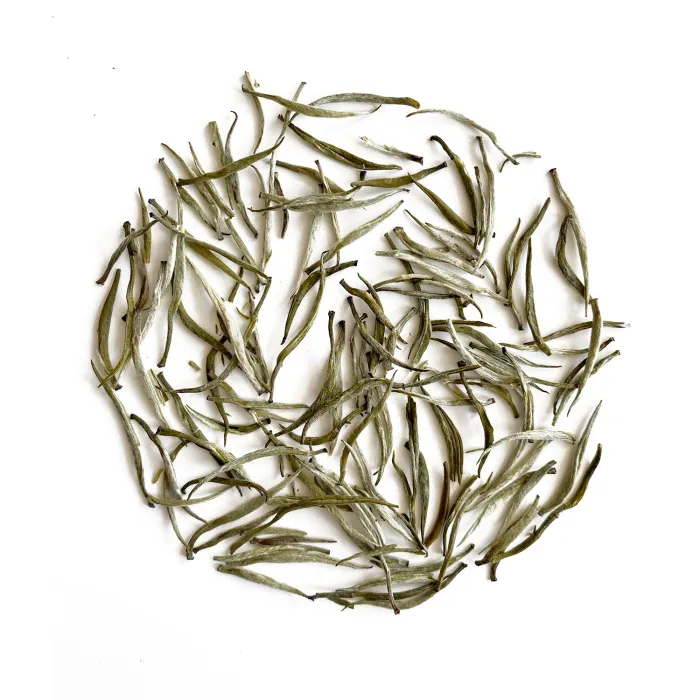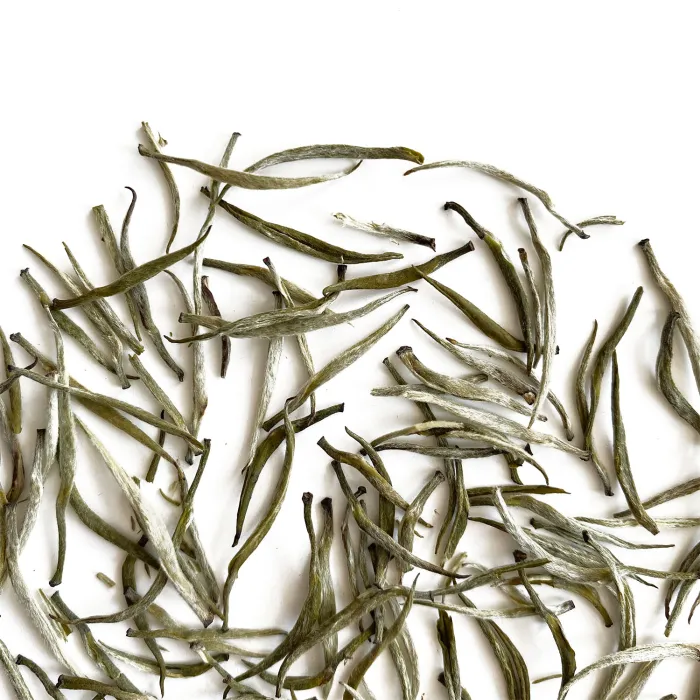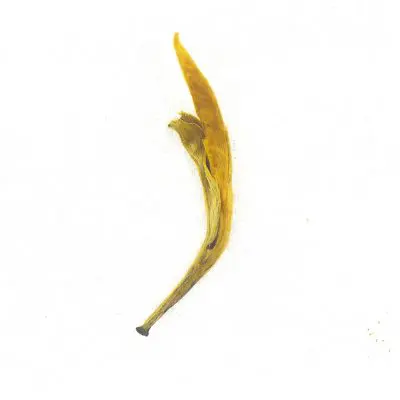
Black Tea
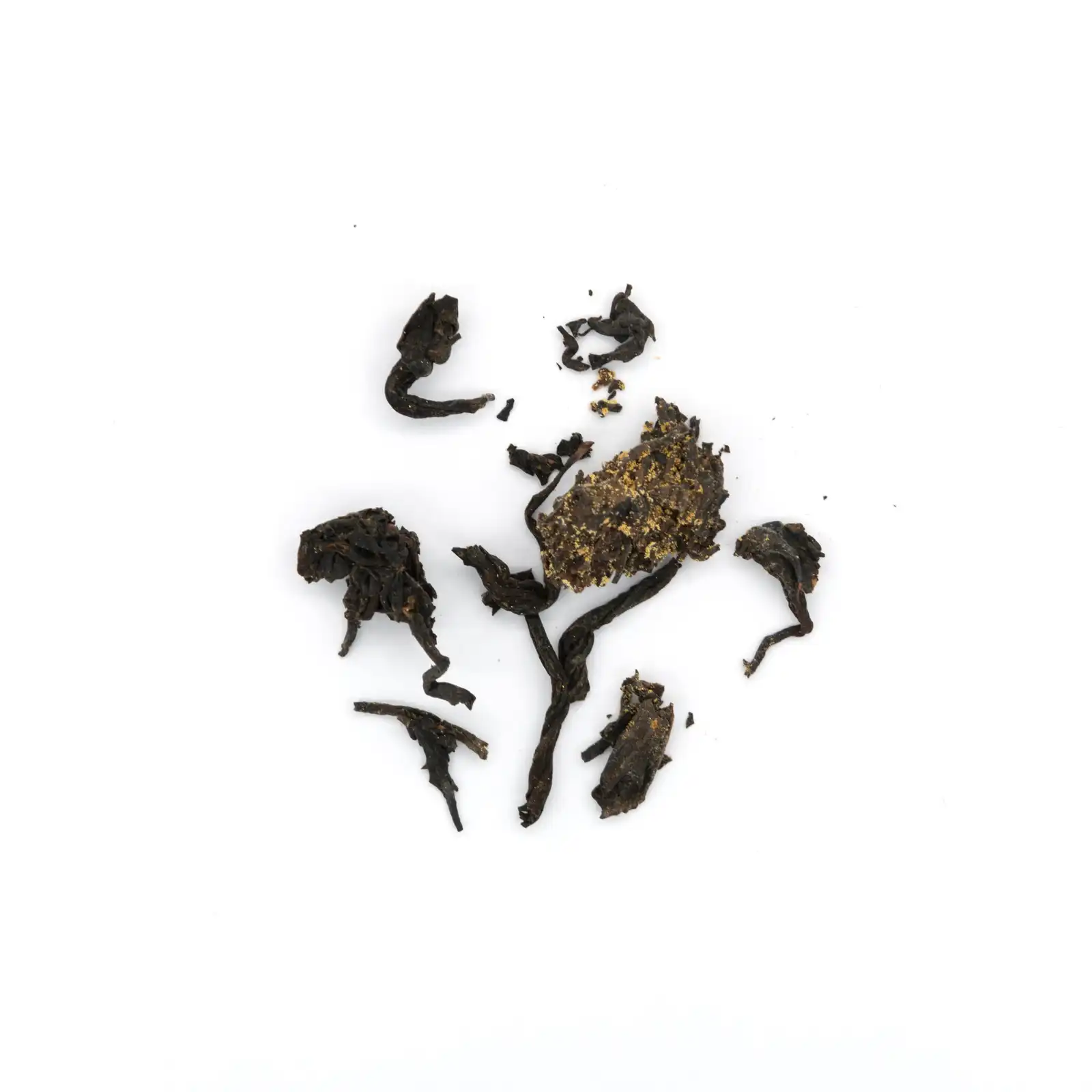
Dark Tea
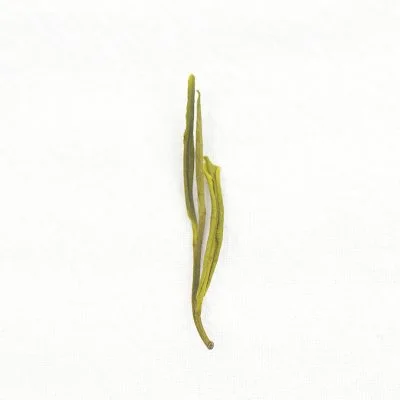
Green Tea
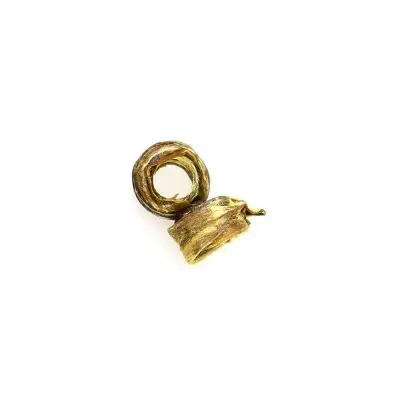
Jasmine Tea
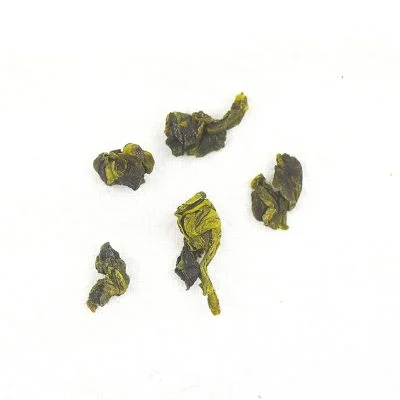
Oolong Tea
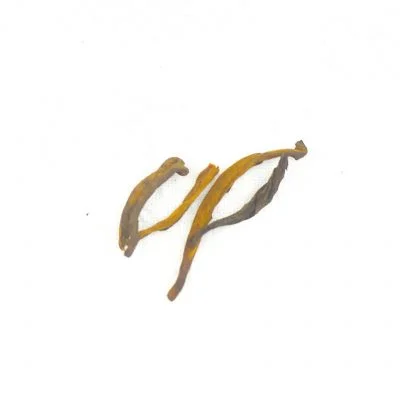
Pu-erh Tea
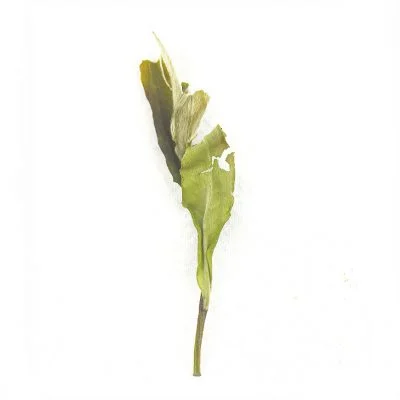
White Tea
Showing 13–24 of 60 results
2019 San He Liu Bao Dark Tea
This black tea was produced by Wuzhou Tea Factory in Guangxi in 2019 and began aging in 2016. It is renowned for its distinctive betel nut aroma. The dry leaves are small and compact, slightly twisted, and after years of aging, they still exude a rich aged fragrance.
When brewed, the liquor is clear and amber-red in color. It delivers a smooth and mellow mouthfeel with a pronounced betel nut aroma and a rich, layered complexity.
Ancient Tea Tree Yunnan Black Tea (Dianhong)
Anji White Tea (An Ji Bai Cha) 2025
Our Anji White Tea originates from the core production area of Anji, Zhejiang. Though its name includes “white,” it belongs to China’s green tea category (processed using green tea techniques). This tea boasts an exceptionally fresh and tender flavor, reminiscent of early spring air. It exudes an enchanting orchid fragrance with a lingering aftertaste—sweet and utterly free of bitterness.
Anxi Ti Kwan Yin Floral Fragrant (Tieguanyin)
This floral-scented Tieguanyin boasts a more intense and vibrant orchid aroma than standard varieties, with distinct layers of fragrance. Crafted using the Xiaoqing fermentation technique: the shaking process is shorter than the Zhengwei method, minimizing stem sap penetration into leaves. Fixation is completed the following afternoon, resulting in lighter fermentation that maximizes the tea’s freshness.
Originating from Anxi, Fujian between 1725-1735, this tea is rich in amino acids, vitamins, polyphenols, and other nutritional and medicinal compounds. Its unique mellow aroma paired with vibrant orchid notes creates a refreshingly smooth taste, making it a favorite among tea enthusiasts. Perfect for daily enjoyment or entertaining guests.
Anxi Ti Kwan Yin Fragrant (Tieguanyin)
Da Hong Pao, hailed as the “King of Rock Teas,” originates from Wuyi Mountain in Fujian Province. Its leaves are harvested from rare tea trees that can reach a thousand years old, yielding an extremely limited harvest. This tea is truly a national treasure.
The dry leaves are slender, tightly rolled, and deeply colored, with edges tinged in dark green. When brewed, the tea liquor becomes amber-clear and luminous, pure and bright. It delivers a sweet, mellow, and rich flavor with a lingering floral aroma, completely free of bitterness or astringency. Due to its traditional medium charcoal roasting, it also carries a subtle caramel fragrance, creating a unique profile that makes it ideal for connoisseurs to savor and collect.
Anxi Ti Kwan Yin Original (Tieguanyin)
This Tieguanyin tea adheres to the traditional Zhenwei processing method: first withering followed by killing the green, with the entire process completed before dawn the day after withering. Originating from a technique pioneered by Anxi tea farmers in Fujian between 1725 and 1735, it boasts authentic quality.
The dry leaves exhibit a sandy green hue with hints of “old bark” brown, curling like dragonfly heads. Its aroma is more delicate and refined than standard Tieguanyin, yet carries a fresh orchid-like fragrance. The mouthfeel is silky smooth with a rich, mellow taste, leaving an exceptionally intense and lingering aftertaste. Rich in amino acids, polyphenols, and other nutritional and medicinal compounds, it is beloved for its unique flavor profile and is best savored slowly.
Anxi Ti Kwan Yin Strong (Tieguanyin)
Dongting Mountains Pi Lo Chun (Bi Luo Chun)
Biluochun ranks among China’s top ten famous teas, cultivated in the Dongting Mountain regions east and west of Suzhou. Its harvesting and processing strictly adhere to the “single bud, single leaf” standard. Premium Biluochun leaves resemble delicate bird tongues, tightly curled dry tea leaves display a silvery-green hue, and their surface is covered with a layer of fine white downy hairs—a quality immediately apparent to the eye.
This particular selection is specially sourced Mingqian Biluochun, harvested just before the Qingming Festival (around April 4-6). When brewed, it delivers an exceptionally delicate and refreshing taste—its vibrant freshness feels like savoring the sweetness of early spring directly on your tongue.
Fuding Aged White Peony Tea Cake 2012
Fuding, renowned as the birthplace of Chinese white tea, produces this tea cake crafted from Bai Mu Dan leaves sourced from Mount Taimu. After a decade of aging, its aroma has deepened into a rich, mellow complexity.
The first infusion reveals the tea’s inherent freshness and crispness. Subsequent infusions unfold a smooth interplay of floral sweetness and aged notes, interwoven with a distinctive herbal fragrance. The lingering aftertaste carries a natural herbal sweetness, with a long-lasting finish. After eight or nine infusions, the taste transforms into a refreshing sweetness. The tea cake is round and wrapped in cotton paper. Bai Mu Dan leaves feature wavy edges with slight serrations, and their undersides are covered in white downy hairs (which enhance aroma and are rich in free amino acids). The buds are finer and more tender than those of Shou Mei or Gong Mei, making this tea suitable for both daily enjoyment and long-term storage.
Fuding Tailao Mountain Aged White Tea Cake2009
Most Chinese white tea originates from Fuding, Fujian—a region hailed as the “Hometown of White Tea.” This white tea cake is crafted from plum blossom tea sourced from Mount Taimu in Fuding.
As a wild, aged white tea, its charm deepens with time: the first infusion melts on the palate, enveloping you in lotus fragrance, smooth sweetness, and interwoven aged notes, leaving a lingering aftertaste. By the third or fourth infusion, the aged notes gradually fade, giving way to a fresh, sweet date aroma. By the eighth or ninth infusion, the palate transforms from rich and mellow to refreshingly crisp and sweet, revealing layers of complexity.
Perfect for daily savoring or continued aging and collection, this tea is a must-try for seasoned connoisseurs!
Fuhai Lucky Tangerine Ripe Pu-Erh (Xiao Qing Gan)
Fujian Silver Needle White Tea
Fujian’s native Silver Needle white tea is crafted exclusively from single buds—plump and robust buds enveloped in fine, silvery-white downy hairs, radiating a lustrous sheen.
It adheres strictly to traditional methods: hand-picked leaves undergo natural withering followed by low-temperature drying, without pan-firing or rolling, preserving the tea’s pristine freshness to the utmost.
When brewed, the liquor is pale yellow and crystal clear. A subtle downy fragrance mingled with a hint of orchid scent first wafts to the nose. On the palate, it is refreshingly sweet and mellow, with a crisp freshness that gradually unfolds on the tongue. A gentle, lingering sweetness follows after swallowing.























